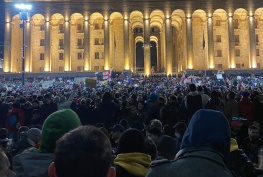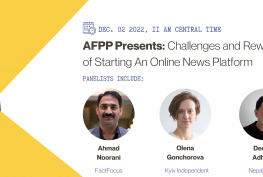SABEW Lessons and Initial Impressions of Columbia, MO
By Glenda Ortega
 The week before last, I saw how the American business journalists are engaged with their profession. Journalists from the NY Times, USA Today, Washington Post and other important media shared their journalism experience at the SABEW’s 50th anniversary conference in Washington, DC.
The week before last, I saw how the American business journalists are engaged with their profession. Journalists from the NY Times, USA Today, Washington Post and other important media shared their journalism experience at the SABEW’s 50th anniversary conference in Washington, DC.
And there I was, in the audience. It was interesting to see many young people, reporters and journalism students. All of us were listening to the storytellers.
This year, one of the topic of discussion was whether ethics codes are keeping up with online journalism. The panelists were Marty Baron, the executive director of the Washington Post; Susan Goldberg, the executive director of the Federal State and local government coverage for Bloomberg News and; Karen Pensiero, the assistant managing editor at Wall Street Journal.
It is very easy to make mistakes these days, especially on the social media. They agreed that the verification is the main way not to make mistakes. It doesn’t matter the platform used, they agreed, all the journalists should know values are the most important thing.
I also learned more about the Public Media in the United States. The Public Media (Radio and TV) is a nonprofit organization which depends on donations. The Public Media has its own budget and the American citizens pay with their taxes to support it. In fact, it is less than the British citizens’ payment, but the American public media doesn’t get money from the government.
In Ecuador, the confrontation among government and the private media has led to the creation of Public Media. Now, there are a public radio, public TV and almost 10 publications. The budget is paid by the government and the content is basically the official version.
But Ecuador is not the only country. Two days ago, I read a column that the public media in Argentina, Bolivia, Venezuela and Brazil are in the same line. “The official character in the editorial line of the majority of the public media in Latin America is probably the most visible problem,” said Luis Arroyo, sociologist and columnist. He is also one of the authors of the book “The revival of public television in Latin America”.
It was a really good experience and not just about to learn about economic data or social media. I learned about how the journalists in this country work.
 I said goodbye to Washington D.C. last Sunday. Columbia, MO is my new home now. I have been here for about a week. I have attended some classes and I am really interested in being part of the projects of the School of Journalism.
I said goodbye to Washington D.C. last Sunday. Columbia, MO is my new home now. I have been here for about a week. I have attended some classes and I am really interested in being part of the projects of the School of Journalism.
So far, the Global Journalist class has been really interesting. Students from across the U.S. discuss free press issues around the world. Definitely, my world view will be much larger when I return to Ecuador.
Being here is a great experience. I can share with journalism students in class and also do what I love: journalism.




